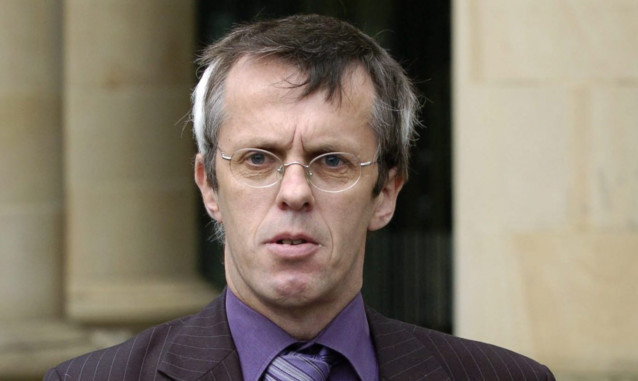
Scots pay more in council tax than London boroughs.
Struggling Scots families are being forced to pay hundreds of pounds more council tax than householders in the most affluent areas of London.
Council tax across Scotland has been frozen since 2007, but Scots are still forking out far higher rates than many of their English counterparts.
This year, people living in a Band D home in Westminster, where the average salary is £46,316, are paying just £681 council tax the cheapest in the UK.
That’s a third lower than the £1,024 families in the Western Isles Scotland’s cheapest council tax area pay, despite residents on the islands earning only £21,302 on average.
The story is the same across London with the likes of Wandsworth and the City of London significantly cheaper than all 32 regions of Scotland.
Ian Tasker, assistant secretary of the Scottish Trades Union Congress, on Saturday night called for an overhaul of the council tax system.
He said: “I think there is a problem with the council tax bands as it stands.
“At the moment there is not a range of options and we believe that reform is needed to make it more equal.
“We have those that cannot afford to pay £1,000-plus and their property’s band should reflect that.
“Whereas if you go to the higher wage scale, the property band doesn’t reflect them either.”
The situation is the same across swathes of northern England with some boroughs being forced to charge £1,000 more than the capital.
In Hartlepool, which has an average wage of £23,962, council tax for a Band D home is £1,686 £1,000 more than Westminster, £994 more than Wandsworth, £742 more than City of London, £624 more than Hammersmith and Fulham and £600 more than Kensington and Chelsea.
Neighbouring Redcar and Cleveland, whose residents earn £21,288, charges £1,644 a year which made it the ninth most expensive in England.
Labour MP Iain Wright, who represents Hartlepool, believes the disparity exists because poorer areas have greater demand on services and fewer people able to pay for them.
He said: “People are really struggling in terms of bills rising faster than wages and council tax can be a massive part of the expenditure.
“So whichever local authority it is, needs to look to make sure they really give value for money.
“What you will find in deprived places is there is very much more demand on services, there are more older people, more issues with mental health and other issues which cost money.
“And the ability to draw revenue to fund that is made more difficult in northern areas.
“My area has had the highest funding cut per head in the country by this coalition.”
He added more than half of his constituents live in the cheapest Band A properties while the majority in affluent London boroughs live in high band homes.
A Convention of Scottish Local Authorities spokesman said: “It is a difficult time financially across the whole of the public sector.
“Every year since devolution council tax rises in Scotland have been less than in England and Wales.”
During the SNP’s 2007 election campaign it promised to scrap council tax and replace it with a 3p local income tax.
But the proposal was put on the backburner in 2009 and has remained there, despite the party winning a majority at the last election.
A spokesman for MSP Derek McKay, the local government and planning minister, said: “After council tax increased by 60% under Labour, the Scottish Government has fully funded the council tax freeze in Scotland since 2007/8.
“Responsibility for placing properties in valuation bands for the purpose of council tax rests solely with the relevant Scottish Assessor, who is independent of both local and central government.”
Related stories

Enjoy the convenience of having The Sunday Post delivered as a digital ePaper straight to your smartphone, tablet or computer.
Subscribe for only £5.49 a month and enjoy all the benefits of the printed paper as a digital replica.
Subscribe